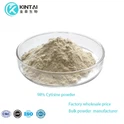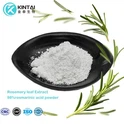Mango leaf extract is a natural remedy that has gained increasing popularity in recent years due to its potential health benefits. It is derived from the leaves of the mango tree, which have been used in traditional medicine for centuries. This article aims to explore the various uses and advantages of mango leaf extract by examining its properties and the scientific evidence supporting its efficacy. Understanding the potential applications of mango leaf extract is crucial for individuals seeking natural alternatives for promoting overall well-being.
Overview of Mango Leaf Extract
Mango leaf extract is obtained through a process of drying and extracting the leaves of the mango tree (Mangifera indica). The leaves contain various compounds, including polyphenols, mangiferin, and flavonoids. These components are believed to contribute to the potential beneficial effects of mango leaf extract. The presence of antioxidants, anti-inflammatory agents, and other bioactive compounds in mango leaves makes them a valuable source of natural remedies.
Antioxidant Properties
One of the primary benefits of mango leaf extract is its antioxidant activity. Antioxidants play a crucial role in neutralizing free radicals and reducing oxidative stress in the body. Free radicals are unstable molecules that can damage cells and contribute to the development of various chronic diseases. Mango leaf extract is rich in polyphenols and flavonoids, which have been shown to possess potent antioxidant properties. These compounds scavenge and neutralize free radicals, thereby protecting the body from their harmful effects. Incorporating mango leaf extract into your diet or supplementation regimen may help boost your antioxidant intake and potentially reduce the risk of oxidative stress-related conditions.
Anti-Inflammatory Effects
Mango leaf extract has also been studied for its anti-inflammatory properties. Inflammation is a natural response of the body's immune system to injury or infection, but chronic inflammation can lead to various health problems. Compounds found in mango leaves, such as mangiferin and polyphenols, have been shown to possess anti-inflammatory effects by inhibiting the production of inflammatory mediators and enzymes. Mango leaf extract may help reduce inflammation in the body, potentially benefiting individuals with inflammatory conditions such as arthritis or cardiovascular diseases.
Blood Sugar Regulation
Several studies have investigated the potential effects of mango leaf extract on blood sugar levels. Mangiferin, a bioactive compound found in mango leaves, has been suggested to have hypoglycemic properties, meaning it may help lower blood sugar levels. This effect is particularly promising for individuals with diabetes or those at risk of developing the condition. Mango leaf extract could potentially aid in regulating blood sugar levels and may be explored as a complementary therapy in diabetes management.
Digestive Health
Mango leaf extract may also offer benefits for digestive health. Traditional medicinal practices have utilized mango leaves to alleviate various gastrointestinal issues, such as diarrhea, constipation, and stomach discomfort. The compounds present in mango leaves are thought to have antispasmodic and anti-inflammatory effects, which could help soothe and protect the digestive tract. Mango leaf extract may potentially aid in digestion, reduce bloating, and promote a healthier gut environment.
Skin Health and Wound Healing
The healing properties of mango leaf extract have also been explored in the context of skin health and wound care. Mango leaves contain compounds with antimicrobial, antioxidant, and anti-inflammatory activities, which may support wound healing and skin regeneration. Topical application of mango leaf extract could potentially aid in treating minor cuts, scrapes, and skin irritations. Additionally, the antioxidant properties of mango leaf extract may help protect the skin from environmental stressors and promote a more youthful and radiant complexion.
Other Potential Uses and Research
Ongoing research is exploring additional potential uses and benefits of mango leaf extract. For instance, some studies have suggested that mango leaf extract may possess antimicrobial properties, which could be useful in combating certain bacterial and fungal infections. Additionally, preliminary research has indicated that mango leaf extract may have potential applications in weight management due to its ability to regulate metabolic processes and influence adipogenesis (fat cell formation). However, further investigation is needed to validate these claims and determine the appropriate dosages and applications.
Safety and Precautions
While mango leaf extract is generally considered safe for consumption, it is important to consult with a healthcare professional before incorporating it into your routine. Certain individuals may have allergies or sensitivities to mango leaf extract, and it is essential to follow recommended dosages and usage guidelines. Additionally, mango leaf extract may interact with certain medications or have contraindications for specific health conditions. Proper guidance from a qualified practitioner is crucial to ensure safe and effective use.
Conclusion
Mango leaf extract is a natural remedy with a wide range of potential benefits rooted in its rich composition of antioxidants, anti-inflammatory compounds, and other bioactive components. From supporting antioxidant defenses and reducing inflammation to regulating blood sugar levels and promoting digestive health, mango leaf extract offers a promising array of applications. However, it is crucial to acknowledge that while the scientific evidence is promising, further research is still needed to fully validate and understand the mechanisms behind its efficacy. As with any natural remedy, it is important to consult with healthcare professionals and follow proper usage guidelines to ensure safe and effective incorporation of mango leaf extract into your wellness routine.
Welcome To Send Us Emails If You Are Interested In Pure Mango Extract At Sales@Kintaibio.Com.
References:
1. Ediriweera, M. K., Tennekoon, K. H., & Samarakoon, S. R. (2017). A review on ethnopharmacological applications, pharmacological activities, and bioactive compounds of Mangifera indica (mango). Evidence-Based Complementary and Alternative Medicine, 2017.
2. Núñez Sellés, A. J., Vélez Castro, H. T., Agüero-Agüero, J., González-González, J., Naddeo, F., De Simone, F., & Rastogi, L. (2002). Isolation and quantitative analysis of phenolic antioxidants, free sugars, and polyols from mango (Mangifera indica L.) stem bark aqueous decoction used in Cuba as a nutritional supplement. Journal of Agricultural and Food Chemistry, 50(4), 762-766.
3. Masibo, M., & He, Q. (2008). Major mango polyphenols and their potential significance to human health. Comprehensive Reviews in Food Science and Food Safety, 7(4), 309-319.
4. Nootim, P., Iawsipo, P., & Jantaree, P. (2022). A review on biological activities and bioactive compounds of mango leaves. Biomolecules, 12(1), 116.
5. Makkar, H. P., Siddhuraju, P., & Becker, K. (2007). Plant secondary metabolites. Humana Press.
6. Miura, T., Ichiki, H., Hashimoto, I., Iwamoto, N., Kato, M., Kubo, M., ... & Ishihara, E. (2001). Antidiabetic activity of a xanthone compound, mangiferin. Phytomedicine, 8(2), 85-87.
7. Srinivasan, R., Chandrasekar, M. J. N., Nanjan, M. J., & Suresh, B. (2007). Antioxidant activity of Caesalpinia digyna root. Journal of Ethnopharmacology, 113(2), 284-291.
8. Sethiya, N. K., Nahata, A., Mishra, S. H., & Dixit, V. K. (2010). An update on Mangifera indica--a comprehensive review. Saudi Pharmaceutical Journal, 18(4), 201-215.
9. Talla, V. P., Vemuri, S., Bakshi, V., Sahni, G., & Gopalkrishna, B. (2019). Mango leaf extract: A potential herbal medicine for urban metabolic syndrome. Complementary Therapies in Medicine, 44, 25-30.







